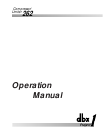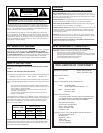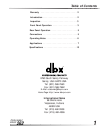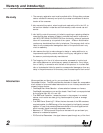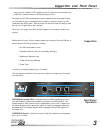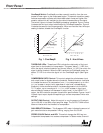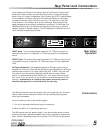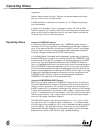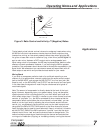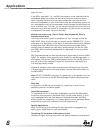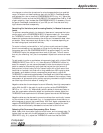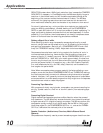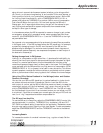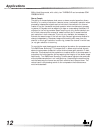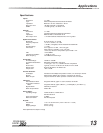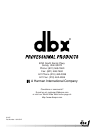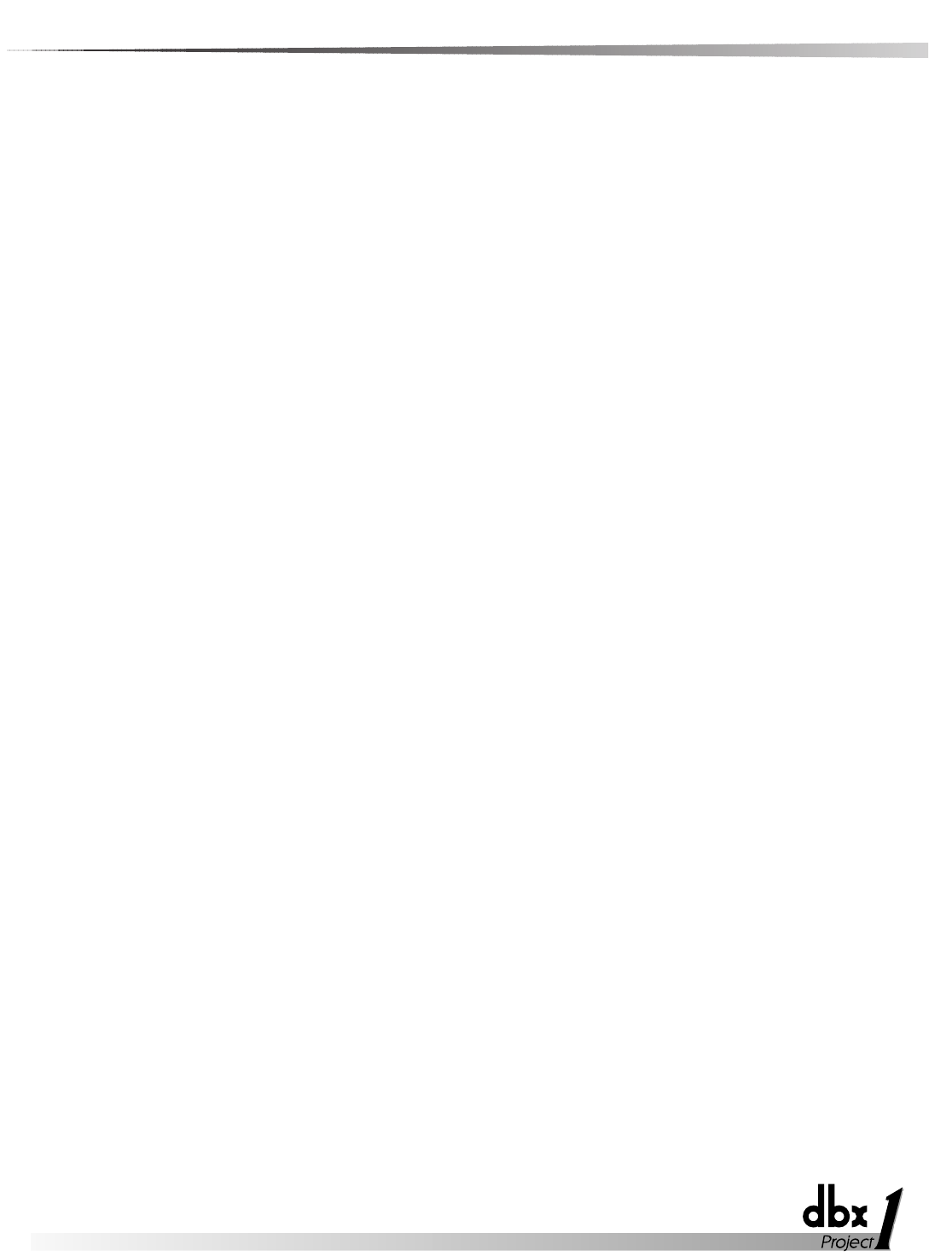
10
Applications
REDUCTION meters show 15dB of gain reduction, then increase the COMPRES-
SION RATIO if necessary. In OverEasy® mode, the 262 takes slightly longer to
react than in Hard Knee mode, and will therefore emphasize the slap at the
beginning of the note and reduce the boominess of its body. The 262 also
works well for tightening snare drums and tom toms and can be used with
drum machines to effectively alter the character of any electronic drum sound.
For drum kit submixes (e.g., mixing multiple drum tracks to two tracks while
using two 262s for compression), consider backing off the COMPRESSION
RATIO on each 262 (down to 2:1) to avoid an excess of cymbal “splattering.” In
larger multitracking systems, compress the kick and snare separately. A further
possibility (if you have two more compressors) is to heavily compress a stereo
submix of toms and leave the remaining percussives unaffected.
Raising a Signal Out of a Mix
Since reducing dynamic range increases the average signal level by a small
amount, a single track can be raised out of a mix by boosting its level slightly
and applying compression. Start with a 2:1 COMPRESSION RATIO and a rela-
tively low THRESHOLD setting (-20dB). Adjust both controls as necessary.
Compressors have also been used to bring vocals to the forefront of a mix in
volume-restricted studios (e.g. home studios). Start by adding a foam wind-
screen to the mic (if it doesn’t have one). Set the COMPRESSION RATIO to 10:1
and the THRESHOLD to -10dB. With your mouth approximately 2 inches from
the mic, sing the vocal part, but with less volume than normal. Use phrasing to
give the part some intensity. An equalizer (e.g., a dbx 3031 Graphic Equalizer)
or a vocal effects device (e.g., dbx 290, delay, distortion) can be added to fur-
ther toughen the performance.
Note: When compressing stereo program material, the factors affecting a com-
pression curve and the actual COMPRESSION RATIO and THRESHOLD settings,
are like those previously covered with reference to single channels of program
material. However, it will generally be found that large amounts of compression
are more audible in a mixed stereo program than they might be on the separate
tracks that were mixed to create the program.
Preventing Tape Saturation
With programs of widely varying levels, compression can prevent recording lev-
els (e.g., cymbal tracks in a final mix or drum kit submix) from saturating tape
tracks.
Preventing Digital Overload
Digital recorders and samplers produce audible distortion when they exceed
their headroom. The 262 effectively ensures that audio input does not overload
a digital recorder’s D/A (digital-to-analog) converters. The 262 can perform this
compression quietly enough for all digital media. Set the 262 for limiting with
Hard Knee mode On, the COMPRESSION RATIO to °:1, and set the THRESH-
OLD 2 to 3 dB below the overload point of the recorder.
Speaker Protection (Auditoriums, Churches, Mobile DJs and Sound
Systems)
Compressors are frequently used to prevent excessive program levels from dam-



